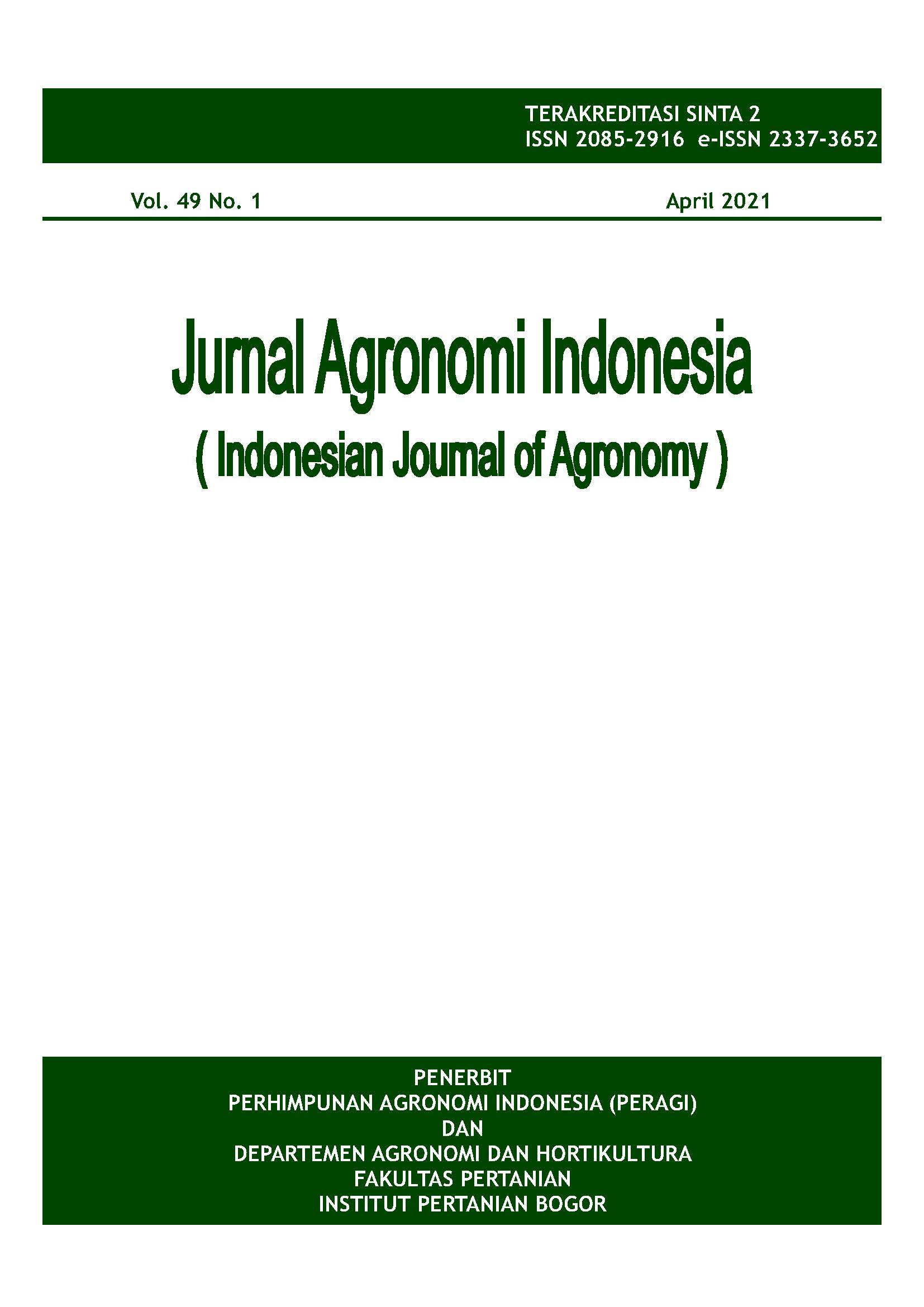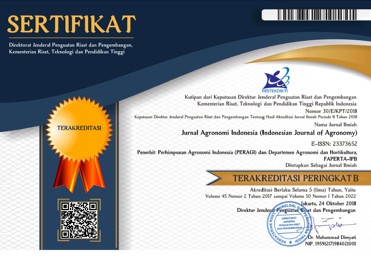Penampilan Agronomi Galur-Galur Padi Sawah Tadah Hujan Toleran Kondisi Anaerob pada Fase Perkecambahan
Abstract
Direct seeding in rainfed lowland areas requires adaptive varieties as well as tolerant to low oxygen levels during germination under flooded condition or anaerobic germination (AG). The research was aimed to evaluate agronomic performances of rice genotypes and evaluate their tolerance to AG. Evaluation of rice genotype tolerant to AG was conducted at Indonesian Center for Rice Research’s greenhouse in February 2020. The materials were 12 genotypes. Screening AG was carried out by soaking the seeds in 50 cm of depth water for 10 days. Agronomic performance of genotypes was evaluated in rainfed lowland at Sumedang and Pati during the wet season of 2020. The experiments were arranged in a randomized complete block design with four replications in each location. Based on recovery ability, shoot length, root length, and biomass, we identified that IR 83381-B-B-6-1, IR 129336:11-19-Ski-0-Kn-3 and B14897E-SKI-9-7-2 had better AG tolerance compared with popular check varieties. The field experiment showed the lines were not significantly different for grain yield compared to the check varieties, namely Inpari 30 and Inpari 39. IR 129336:11-19-Ski-0-Kn-3 (5.61 ton ha-1) and B14316E-KA-15 (6.04 ton ha-1) had consistently high yield in two locations. These results revealed that IR 83381-B-B-6-1, IR 129336:11-19-Ski-0-Kn-3 and B14897E-SKI-9-7-2 are recommended for multilocations trials on yield potential and adaptability in order to be released as tolerant varieties to AG.
Keywords: abiotic stress, anaerobic germination, direct seeding













